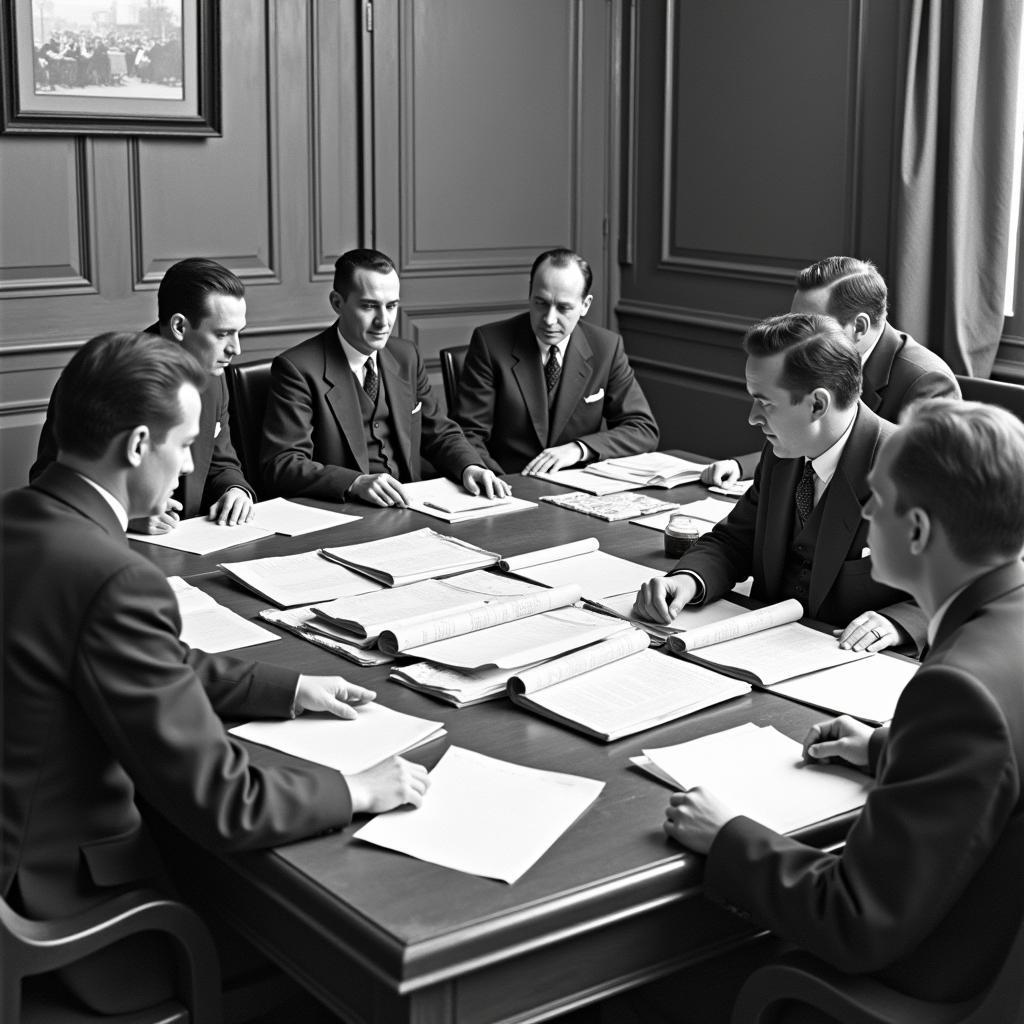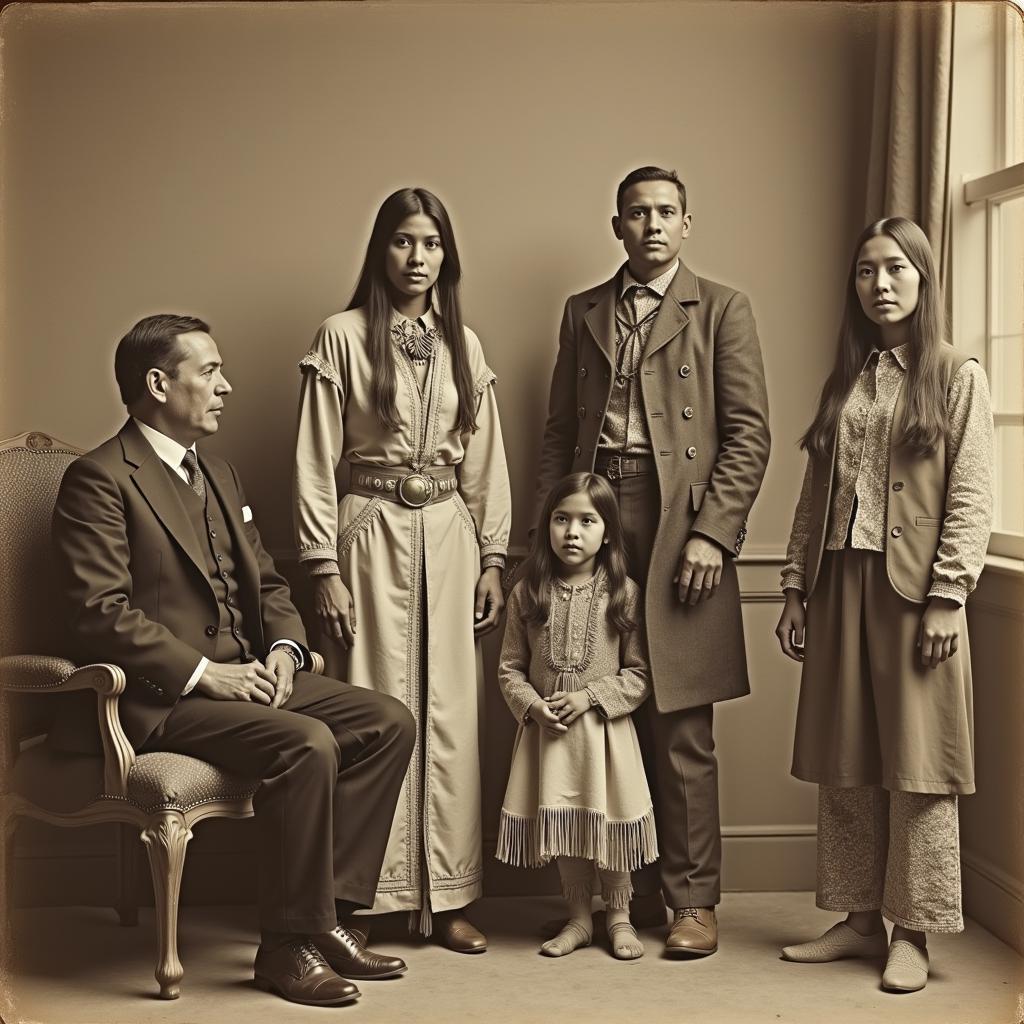The Oklahoma Historical Society Dawes Rolls stand as a testament to a complex and often tumultuous period in Native American history. This meticulously compiled record, officially known as the “Final Rolls of Citizens and Freedmen of the Five Civilized Tribes,” was created between 1898 and 1914. Its purpose was to enumerate the members of the Cherokee, Chickasaw, Choctaw, Creek (Muscogee), and Seminole Nations, collectively known as the Five Civilized Tribes, who were residing in Indian Territory (present-day Oklahoma) prior to the land’s official statehood in 1907.
The Dawes Rolls, named after Senator Henry L. Dawes of Massachusetts, who played a pivotal role in the Dawes Act of 1887, were more than just a census. They served as the foundation for the breakup of tribal landholdings and the allotment of individual parcels to tribal members. This process, driven by the assimilationist policies of the US government at the time, aimed to integrate Native Americans into mainstream American society by dismantling their traditional communal land ownership systems.
 Dawes Commission Meeting
Dawes Commission Meeting
The Dawes Act and Its Impact on Tribal Sovereignty
The Dawes Act, formally known as the General Allotment Act of 1887, marked a turning point in US-Indian relations. This legislation sought to abolish communal tribal land ownership and replace it with individual land allotments. The Act stipulated that each head of household would receive 160 acres, while single adults and orphans received smaller parcels. The remaining “surplus” lands, often the most fertile and resource-rich, were then opened up for purchase by non-Native settlers, leading to significant land loss for the Five Tribes.
The Dawes Act had a profound impact on the Five Civilized Tribes, significantly diminishing their land base and undermining their traditional forms of governance. The act’s emphasis on individual land ownership ran counter to the tribes’ longstanding communal practices, disrupting their social structures and economic systems. Moreover, the loss of “surplus” lands to non-Native settlers further eroded tribal sovereignty and contributed to a sense of displacement and dispossession among Native peoples.
Enrolling in the Dawes Rolls: A Complex and Fraught Process
The process of enrolling in the Dawes Rolls was fraught with complexities and inconsistencies. Individuals had to provide detailed information about their ancestry and tribal affiliation, often relying on oral histories and familial knowledge that was not always documented in written records. The Dawes Commission, tasked with overseeing the enrollment process, faced immense challenges in verifying claims and ensuring accuracy.
Adding to the complexity were the categories established by the Dawes Rolls:
- Citizens by Blood: This category included individuals who could demonstrate direct lineage to an ancestor listed on earlier tribal censuses.
- Freedmen: This designation encompassed individuals formerly enslaved by members of the Five Tribes. They were granted citizenship in their respective tribes, though their rights and recognition varied considerably.
- Intermarried Whites: This category included individuals of European descent who had married into the Five Tribes. Their eligibility for enrollment often depended on the specific tribe and the circumstances of their marriage.
 Family Meeting with Dawes Commissioner
Family Meeting with Dawes Commissioner
The enrollment process was plagued by issues of fraud, coercion, and racial bias. Some individuals, eager to secure land allotments, submitted fraudulent claims, while others were denied enrollment due to discriminatory practices or a lack of documentation. The categorization of individuals based on blood quantum and racial identity further complicated matters, leading to disputes and divisions within families and communities.
The Dawes Rolls Today: Legacy and Significance
The Oklahoma Historical Society Dawes Rolls, despite their imperfections, remain a vital resource for genealogists, historians, and tribal members seeking to trace their ancestry and understand the impact of this historical period. They provide invaluable insights into the demographics, social structures, and cultural practices of the Five Civilized Tribes in the late 19th and early 20th centuries.
Today, the Dawes Rolls continue to shape the identity and citizenship criteria of the Five Civilized Tribes. Many tribes use the Dawes Rolls as a baseline for determining membership, often requiring individuals to demonstrate lineal descent from an ancestor listed on the rolls. This has sparked ongoing debates about tribal sovereignty, blood quantum requirements, and the rights of descendants of Freedmen and Intermarried Whites.
The Dawes Rolls serve as a stark reminder of the complexities of history and the enduring legacy of assimilationist policies on Native American communities. They underscore the importance of cultural preservation, self-determination, and the ongoing struggle for recognition and justice faced by Indigenous peoples.
FAQs about the Oklahoma Historical Society Dawes Rolls
1. Why were the Dawes Rolls created?
The Dawes Rolls were created to enumerate the members of the Five Civilized Tribes in preparation for the allotment of individual land parcels, a key provision of the Dawes Act of 1887. This process aimed to break up tribal landholdings and assimilate Native Americans into mainstream American society.
2. How can I access the Dawes Rolls?
The Oklahoma Historical Society maintains the Dawes Rolls and provides online access to digitized copies. You can search the rolls by name, tribe, or enrollment number.
3. What information is included in the Dawes Rolls?
The Dawes Rolls typically include an individual’s name, age, sex, tribal affiliation, blood quantum, relationship to the head of household, and assigned roll number. Some entries may also include additional information, such as former slave owners or places of residence.
4. How do the Dawes Rolls impact tribal citizenship today?
Many of the Five Civilized Tribes still use the Dawes Rolls as a basis for determining citizenship. Requirements vary by tribe, but lineal descent from an ancestor listed on the rolls is often a prerequisite for enrollment.
5. What are some of the criticisms of the Dawes Rolls?
The Dawes Rolls have been criticized for their inaccuracies, inconsistencies, and role in the dispossession of tribal lands. The enrollment process was often flawed, and many individuals were unjustly excluded or categorized based on arbitrary criteria.
Need Help Navigating Your Family History?
The Oklahoma Historical Society Dawes Rolls represent a complex chapter in Native American history. Understanding their creation and impact is crucial for appreciating the challenges and triumphs of Indigenous communities. For further assistance exploring your family’s connection to this pivotal period, contact us. Our team at Society For Peace is dedicated to promoting peace and understanding through historical awareness.
Contact us:
- Phone: 02043854663
- Email: [email protected]
- Address: Khu 34, Bắc Giang, 260000, Việt Nam
Our customer service team is available 24/7 to answer your questions and provide support.